- Home
- slideshows
- miscellaneous
- How a no-deal Brexit could cripple Britain
How a no-deal Brexit could cripple Britain
The NHS could run out of drugs

Customs checks could delay treatment of critical injuries
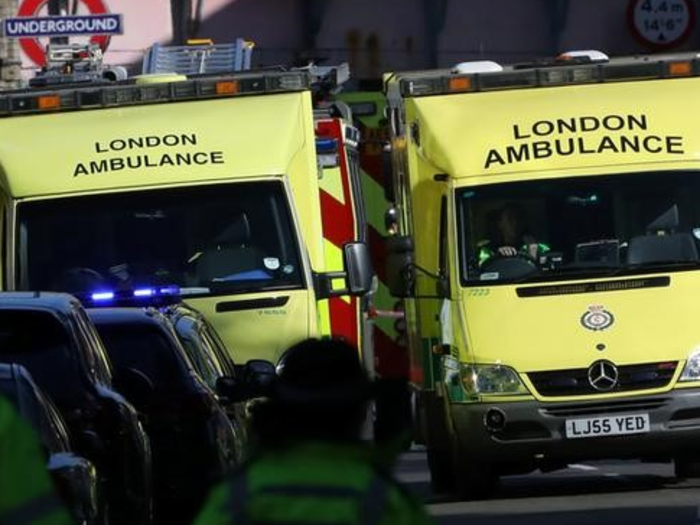
Customs checks at borders would also pose a huge problem for the care and treatment of people critically injured during emergencies.
Accident and emergency trauma packs — which are full of equipment and medicines — are often flown into the UK within hours of being ordered.
During times of large-scale emergencies, such as terrorist attacks, the short time frame is especially necessary because a large number of people are suddenly injured.
Hospitals tend not to stockpile these supplies because they have a short shelf-life. Doing so would mean many packs were wasted at great expense.
Under a no-deal scenario, customs checks between the UK and EU would increase dramatically because the UK would be a third country with no arrangement in place to ease the flow of goods. The prospect of having to wait even a few extra hours for such supplies could be a matter of life and death.
There would be huge queues as British trucks are barred from entering Europe
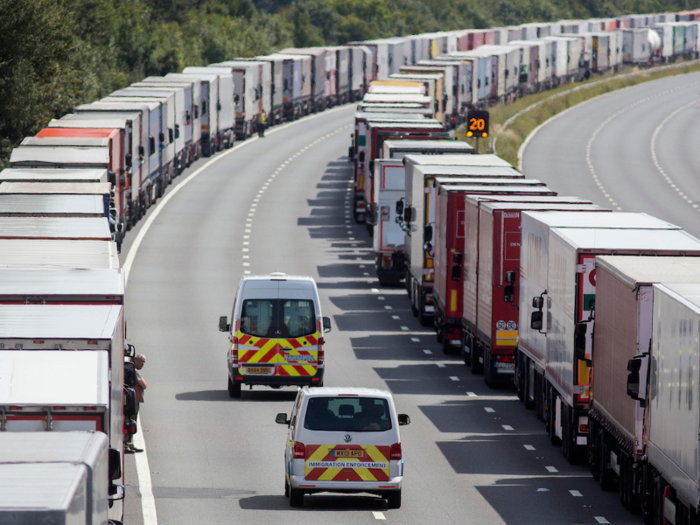
British lorries would be barred from entering Europe under a no deal Brexit, according to an industry chief who spoke to Business Insider.
James Hookham, deputy chief executive of the Freight Transport Association (FTA), told BI that a no deal Brexit would see Britain revert to an old set of international arrangements which handed it just 103 permits to cover the 300,000 journeys made by British trucks make to Europe every year.
That would, in essence, mean the bulk of Britain's lorry fleet was blocked from entering Europe the day after Brexit in March next year, should May fail to secure the transitional deal which is still being negotiated. This would affect hundreds if not thousands of businesses with EU customers.
That, in turn, would spell chaos at Britain's ports, which are unprepared for such an outcome. Dover does not currently hold the necessary capacity to hold the lorries queueing to move across the border, meaning miles-long tailbacks on motorways leading to the port were inevitable.
The government is reportedly considering a plan to turn a 13-mile stretch of the M26 in Kent into a lorry park in order to cope with those tailbacks. Officials are reportedly considering turning the road into a "holding area" for up to 1,400 goods vehicles to try and ease the gridlock as 10,000 lorries a day suddenly required customs checks to enter France.
Shelves would start to empty
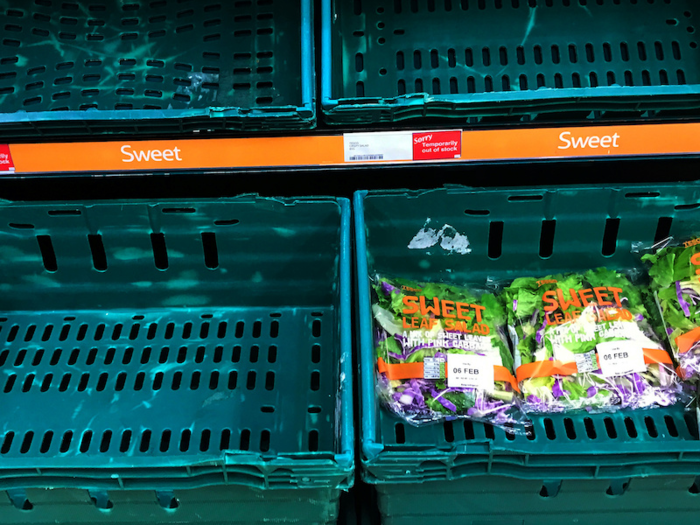
Ministers have reportedly drawn up secret plans to stockpile processed food and medicine more widely to prepare for inevitable shortages under a no deal scenario.
More than 97% of the £22 billion worth of processed food and drinks imported into the UK every year come from the EU, and the industry supports 400,000 jobs.
Indeed, firms have already started stockpiling food, according to Gavin Darby, chief executive of Premier Foods, and president of the Food and Drink Federation, the industry group. He told the FT that "smart companies will have worked out where the pinch points are with ingredients and will be building up inventory," but refused to say what plans Premier Foods itself had made.
On Tuesday, Brexit Secretary Dominic Raab dismissed such reports as "hair-raising scare stories."
Long-haul flights would be barred from taking off
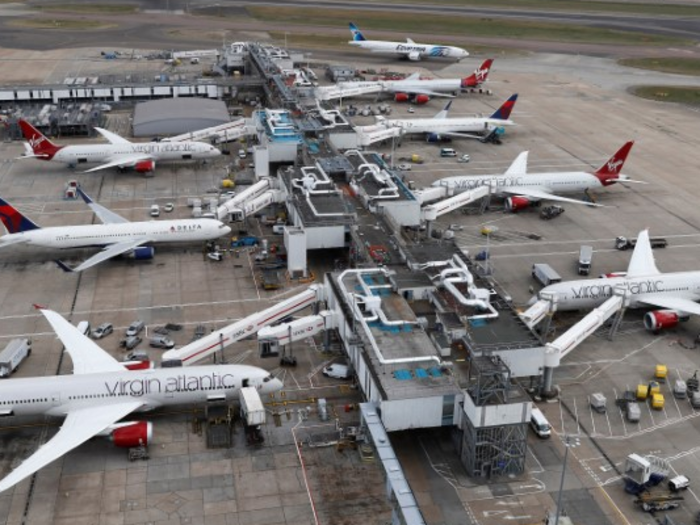
Under a no deal Brexit, UK airlines would cease to be considered EU airlines, meaning they would lose the flying rights necessary to operate across Europe.
Aviation consultant Andrew Charlton told BI that flights between the UK and most European countries would likely continue under a no deal Brexit because most airlines could revert back to pre-EU flying agreements.
As for flights to the rest of the world, however, there would likely be widespread disruption and chaos.
Take the example of the United States. Flights between the UK and US are currently governed by an EU-level agreement. Should that end, the UK would likely revert to last UK-US aviation agreement, called Bermuda 2.
That, says aviation consultant Andrew Charlton, is an "exceptionally restrictive, exceptionally nasty" air traffic agreement which is "generally considered to be one of the greatest crimes in the history of aviation."
It is extremely limited and would be "massively disruptive," Charlton said, and would ground most flights from the UK to the US. Flights between other major countries outside Europe would likely be similarly impacted in the short-term, too.
The City of London would suffer a 'huge financial stability risk'
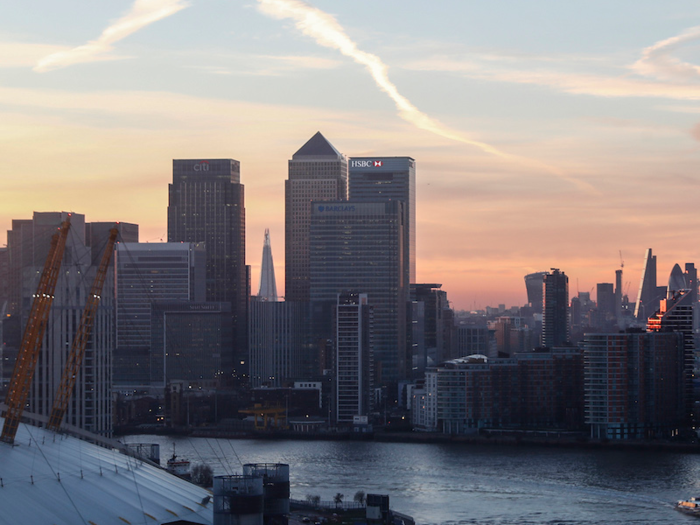
The financial services sector is making urgent contingency plans for a no deal Brexit, but that might not be enough to prevent very damaging consequences for firms and ordinary consumers.
The biggest risks relate to cross-border contracts, which cover financial arrangements between firms and consumers across the EU.
Failure to ensure so-called "contract continuity" would mean that hundreds of thousands of financial contracts which affect ordinary people — insurance policies and pensions, for example — could be rendered void overnight. It is a huge issue.
TheCityUK, a financial services lobby group, told BI that a no deal Brexit could mean:
• Valid insurance claims in the UK were not paid;
• Pensions could not legally be paid;
• Derivatives contracts — a crucial means of hedging financial risk — could become invalid and be unpaid.
The size of some of those contracts, as well as the important role of derivatives contracts in providing financial stability, means disruptions to contract continuity carry "the potential for huge financial stability risk," according to Kerstin Matthias, head of policy at TheCityUK.
"It's a very serious problem," she told BI.
"Industry is doing what it can to ensure that, regardless of any political or regulatory agreement, they can service their existing customers and clients. But it is a huge task to transfer all these existing contracts to a new entity."
"There's simply a sequencing and timing issue where [firms] won't be able to transfer all these contracts by March next year," she added.
The future of EU citizens living in the UK would be in doubt
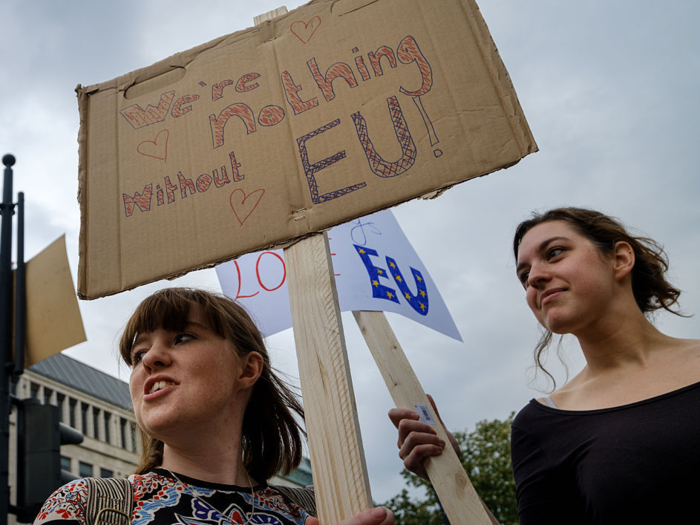
The UK could decide to unilaterally guarantee the rights of EU citizens living in the UK, and reports this week said the UK government would offer EU migrants the right to continue living in the UK and continue accessing the NHS and claiming benefits.
However, this would be a huge administrative task for an already over-burdened civil service, and would likely take months to process. Plus, the Home Office's unimpressive record of tracking citizens — evidenced in the Windrush scandal — will raise questions of whether the department would be equipped to register 3.8 million EU citizens in a no-deal scenario.
There would be a 'catastrophic' impact on manufacturing
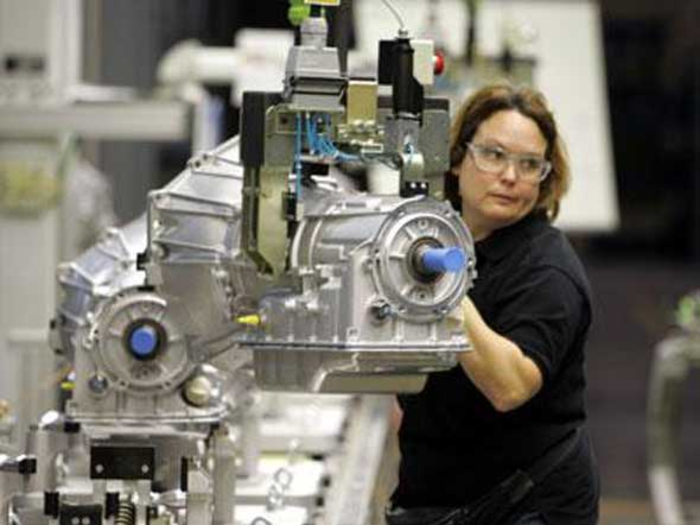
Manufacturing accounts for approximately 10% of UK GDP. It is a highly significant sector which often represents an important source of employment in poorer regions of the UK.
UK manufacturers say a no deal Brexit would spell disaster for the industry, wiping out many smaller firms and pushing larger firms abroad.
Many of their European supply chains are based on parts moving freely and quickly across the single market — "just in time" supply chains — and delays would mean they were forced to stockpile huge amounts of products for which the storage capacity does not exist.
Many firms would go out of business almost immediately.
Airbus, the UK firm which makes aircraft, issued perhaps the starkest warning from a listed manufacturer when it said that time left to avert "catastrophic" consequences was running out.
"If there is a no deal Brexit, it will be catastrophic for this country, and catastrophic for Airbus and our supply chain," Airbus' senior vice president Katherine Bennette told Reuters.
Airbus joined BMW and other major firms in warning they would move thousands of jobs out of the UK to elsewhere in the EU should a no-deal Brexit become a reality.
Popular Right Now
Popular Keywords
Advertisement